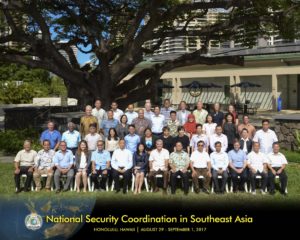 The Daniel K. Inouye Asia-Pacific Center for Security Studies (DKI APCSS) hosted a four-day workshop entitled “National Security Coordination in Southeast Asia” from Aug. 29 to Sept. 1 in Honolulu, to strengthen mutual understanding of national security priorities and coordination processes and explore opportunities for cooperation among the national security coordination agencies in Southeast Asia
The Daniel K. Inouye Asia-Pacific Center for Security Studies (DKI APCSS) hosted a four-day workshop entitled “National Security Coordination in Southeast Asia” from Aug. 29 to Sept. 1 in Honolulu, to strengthen mutual understanding of national security priorities and coordination processes and explore opportunities for cooperation among the national security coordination agencies in Southeast Asia
This workshop brought representatives from the National Security Councils (NSC) and key agencies responsible for the management and coordination of national security in the ASEAN states and the United States.
The workshop focused on three broad themes:
- Regional security perspectives
- National security coordination practices
- Regional gaps and ways ahead for cooperation among the national security coordination agencies in Southeast Asia
“This workshop is the first ever meeting dedicated to the national security coordination agencies and professionals in Southeast Asia,” explained Academic Lead Dr. Alex Vuving.
Presentations by invited experts and select delegations provided discussion starters for debate on these themes, and were conducted in the plenary as well as breakout groups. Breakout discussions capitalized on the small group environment for the in-depth exchange of perspectives, experiences, and thoughts on the issues canvassed. Drawing on key insights and recommendations from these discussions and with the help of a polling technology, synthesis sessions yielded quantitative results of the key points of consensus on specific priorities for follow-up actions.
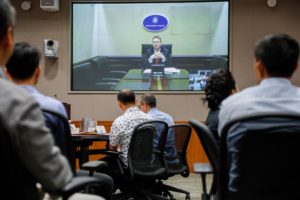
Mr. Matthew Pottinger, Special Assistant to the President and Senior Director for East Asian Affairs in the National Security Council of the United States spoke to the workshop through a VTC from the White House on August 29.
“It was a really positive experience,” explained Mr. David Greene, Director, Office of Multilateral Affairs, Bureau of East Asian and Pacific Affairs, United States Department of State. “I think that the thing I took away from it was just how valuable it is to talk about the conceptions of national security and how you make national security policy with such a diverse cross-section of colleagues from across the region. We rarely get this range of participation, this range of diversity in terms of folks from different countries in the region when we travel. It’s a chance to sit down and talk with 30 colleagues who are thinking about the same challenges, but from very different national perspectives.”
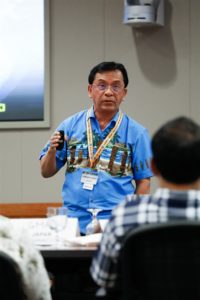
Dr. Lorenzo Clavejo, Assistant Director General, Strategic Management Staff Philippines National Security Council, provides a presentation to workshop participants.
ASEAN is a major promoter of regional cooperation in the Asia-Pacific. Facilitated by the ASEAN framework, government agencies of the ASEAN member states regularly meet with their regional counterparts many times a year in a multilateral setting to work together for the benefit of all. National security councils and their equivalents remain, however, an exception to this common practice. There are currently no regional forums for the agencies responsible for the management and coordination of national security in the ASEAN state.
“This workshop was very beneficial for me as an advisor and special staff of the minister,” said Nicolaus Harjanto, Special Staff Attached to the Minister, Ministry of State Secretariat for Defence, Indonesia. “I learned from the other participants, we got an excellent feel on how the national security coordination in the regions has been going on. We also discuss the future – (how to) make proposals to our respective governments, and that’s one aspect of this workshop that was favorable in terms of substance. I got to know many of the Fellows, analysts, advisors and officials dealing with national security issues in the region. “
The overarching goal of the workshop was to meet a growing need for more interaction, dialogue, and cooperation among the national security coordination agencies in Southeast Asia, and to identify ways ahead for professional and institutional relationship building and the exchange of best practices among these agencies.
“The workshop has provided a great opportunity for professionals in national security coordination of Southeast Asian countries to share views, exchange information, and establish working relationships with their counterparts,” Vuving concluded. “At the end of the workshop, several delegations agreed to take concrete steps to advance the initiatives recommended at the workshop.”
-END-



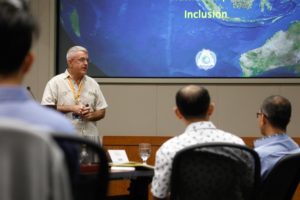
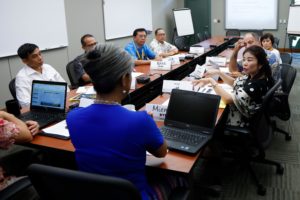
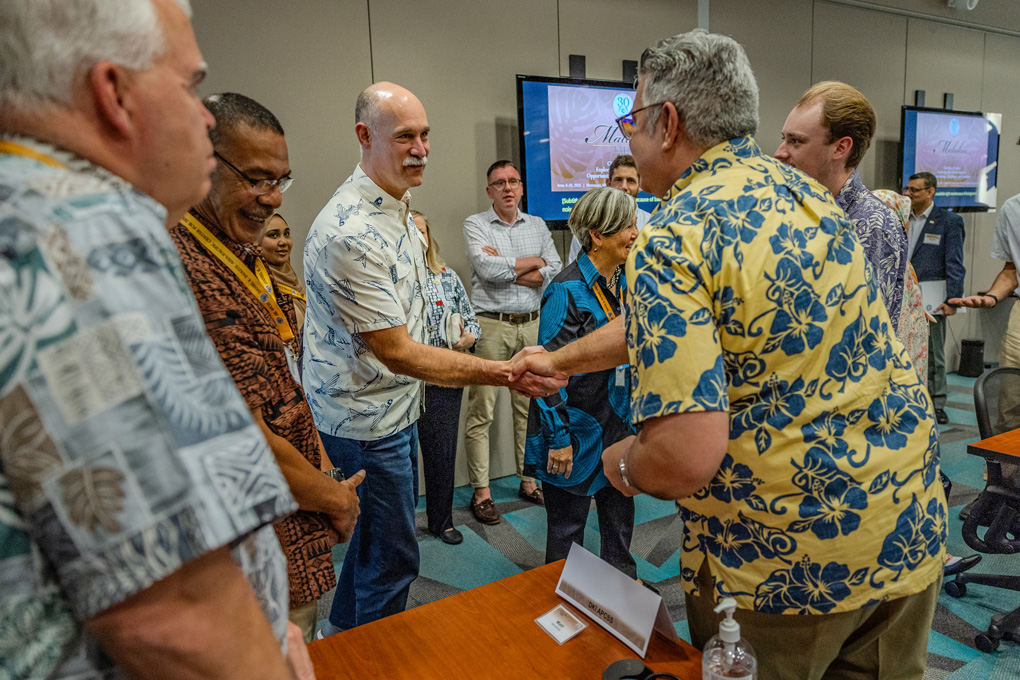
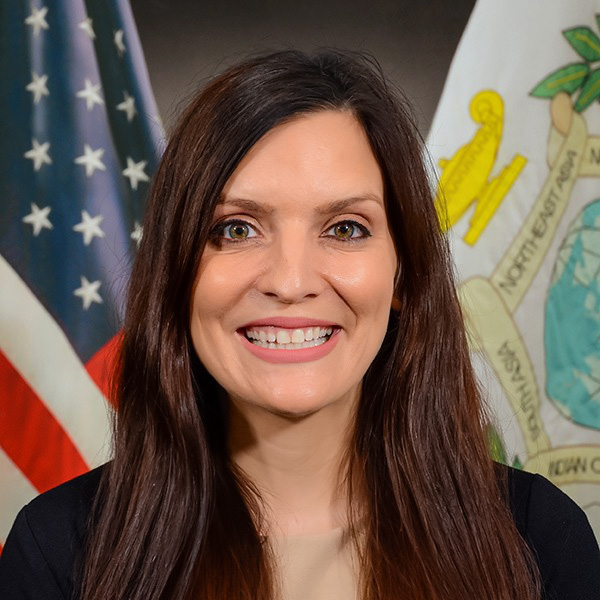
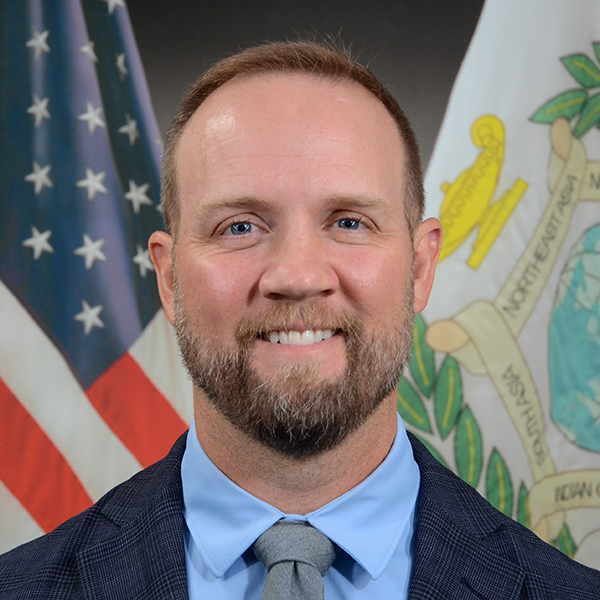



Such regional interaction of diverged security experts not only helps sharing of opinions to identifying the challenges but also to find out ways and means to solve them. Congratulations APCSS for holding such a program.